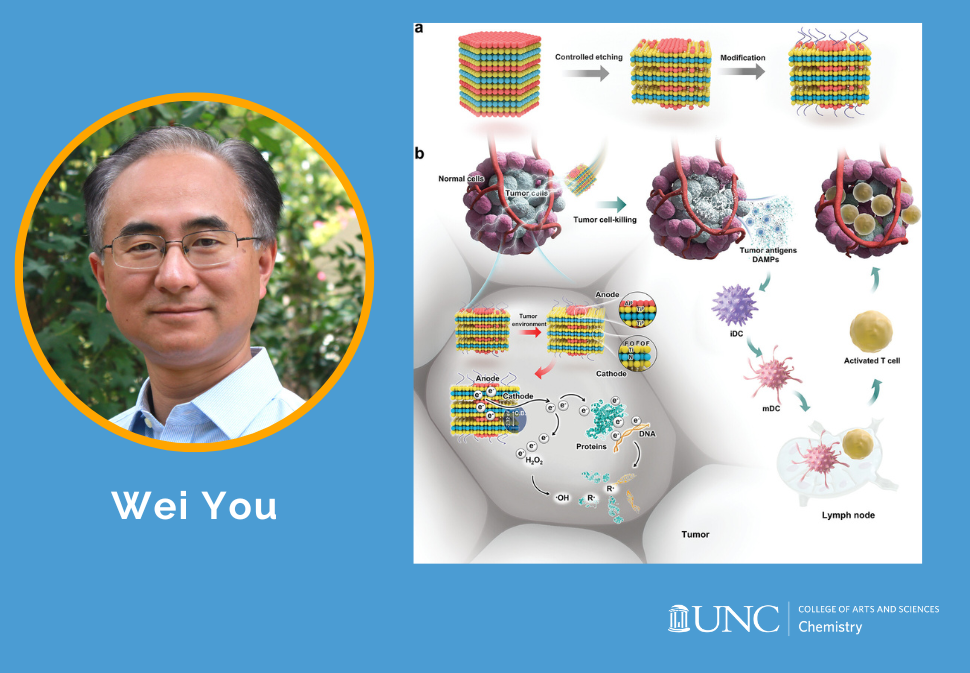Nanogalvanic Cells Release Highly Reactive Electrons in Tumors to Effectively Eliminate Tumors
Abstract
External stimuli triggering chemical reactions in cancer cells to generate highly reactive chemical species are very appealing for cancer therapy, in which external irradiation activating sensitizers to transfer energy or electrons to surrounding oxygen or other molecules is critical for generating cytotoxic reactive species. However, poor light penetration into tissue, low activity of sensitizers, and reliance on oxygen supply restrict the generation of cytotoxic chemical species in hypoxic tumors, which lowers the therapeutic efficacy. Here, this work presents galvanic cell nanomaterials that can directly release highly reactive electrons in tumors without external irradiation or photosensitizers. The released reactive electrons directly react with surrounding biomolecules such as proteins and DNA within tumors to destroy them or react with other surrounding (bio)molecules to yield cytotoxic chemical species to eliminate tumors independent of oxygen. Administering these nanogalvanic cells to mice results in almost complete remission of subcutaneous solid tumors and deep metastatic tumors. The results demonstrate that this strategy can further arouse an immune response even in a hypoxic environment. This method offers a promising approach to effectively eliminate tumors, similar to photodynamic therapy, but does not require oxygen or irradiation to activate photosensitizers.
Citation
Huang, W., Zhu, Y., Gao, F., You, W., Chen, G., Nie, X., Xia, L., Wang, L., Hong, C., Zhang, Z., Wang, F., Yu, Y., & You, Y. (2024). Nanogalvanic cells release highly reactive electrons in tumors to effectively eliminate tumors. Advanced Materials. https://doi.org/10.1002/adma.202404199


